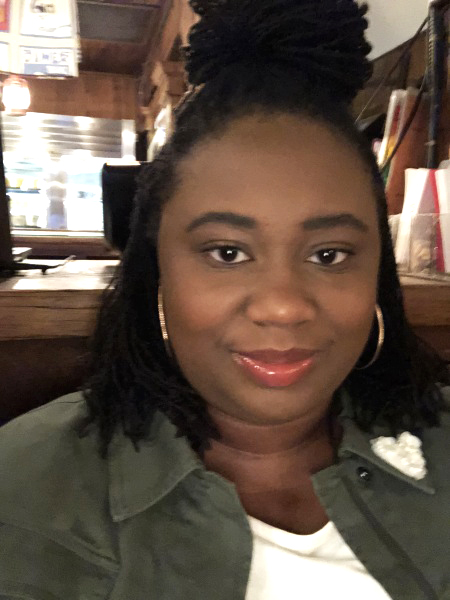Cecilia Shelton

Assistant Professor, English
Research Expertise
African American/African Diaspora
Language, Writing and Rhetoric
Textual and Digital Studies
Cecilia D. Shelton earned her PhD in rhetoric, writing and professional communication from East Carolina University, where she was the graduate assistant director of the University Writing Center. She has authored articles for the Interdisciplinary Journal of Popular Culture and Pedagogy and Praxis: A Writing Center Journal. She is a member of several professional organizations including the National Council of Teachers of English and the Coalition of Feminist Scholars in the History of Rhetoric and Composition. Shelton is interested in Black feminist technical rhetoric, with broad interests exploring the intersections of cultural rhetorics, technical communication, digital and embodied activist rhetorics. Her work broadens notions of work and workplace to include activism and frames the cultural rhetorical practices used by Black activist rhetors as a kind of technical communication. She also interrogates the tension between the oppressive power structures and the transformative potential in writing classrooms and writing centers, both of which are cites of activism for her.
Publications
Dressed, But Not Tryin To Impress: Black Women Deconstructing "Professional" Dress
Early career scholars spend a significant portion of their doctoral study and junior careers thinking critically and deeply about how to synthesize the various aspects of academic work.
Author/Lead: Cecilia SheltonThree scholars entering new phases of their careers reflect on dress practices as a critically symbolic metaphor for the challenges of thriving as Black women in academia.
Shifting Out of Neutral: Centering Difference, Bias, and Social Justice in a Business Writing Course
Through an auto-ethnographic reflection, this article describes an attempt to enact a Black Feminist pedagogy in an undergraduate business writing course.
Author/Lead: Cecilia SheltonDiscussing both benefits and challenges to this pedagogical approach, I advocate for an increase in decolonial methodologies and pedagogies in teaching technical and professional communication and argue for their potential to intervene for equity and justice in both the classroom and the workplace.
Reflections on Building a Popular Writing Course
In this article, three first-year writing instructors reflect on their experiences employing popular culture artifacts in lieu of more traditional academic texts in writing classrooms at a small, private, historically black institution.
Author/Lead: Cecilia SheltonBy retrospectively analyzing the intersections between theory and practice, the instructors’ autoethnographic reflections explore the utility of popular culture artifacts as tools for teaching and learning writing, with an emphasis on rhetorical knowledge and transfer. Though preliminary, their conclusions point to the potential of popular culture for integration into traditional best practices in first-year writing pedagogy.
Disrupting Authority: Writing Mentors and Code-meshing Pedagogy
As sites of scholarship and practice, writing centers are well-positioned to identify problems and propose solutions.
Author/Lead: Cecilia SheltonThe article reviews a course-embedded writing mentors program that responds to the particular manifestations of language discrimination at a small, private HBCU. For those instructors who choose to participate in it, the program is intended to facilitate an instructor's implementation of code-meshing pedagogy.

